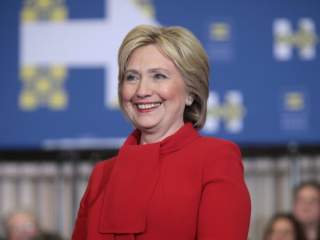Why Hillary Clinton Should Fear Robert Kagan
Leslie H. Gelb weighs in on neocons, Trump's foreign policy and America's future.
LG: I think we’ve always had, since the Second World War, deep divisions in America over foreign policy. There’s a strain in our country which is liberal and internationalist and idealist, and then there’s a very hardheaded anti-Communist and now anti-Muslim strain as well. And it was always very difficult to reconcile them. I don’t think that they are philosophically reconcilable. And you can harness the two only in a great leader, maybe only for a little while.
It’s interesting to me that the smallest school, foreign-policy school, almost throughout, since the Truman administration, is the realist school—which you would think also fits American background, American pragmatism, problem solving. And yet in terms of impact, the realist school has gotten smaller and smaller.
JH: Dean Acheson was obviously a realist, and you had Henry Stimson, Elihu Root, you had a small Republican tradition. But then their successors did come to grief in Vietnam. Dean Rusk and others. So, is that one of the things that hurt realism, because the realists were originally pushing for Vietnam?
LG: I think almost everybody was pushing for Vietnam, and that’s the historical fact lost in most debates. There was tremendous consensus behind that Vietnam war. The feeling was that Communism was coming to a head, to the forefront, getting bolder, and the threat in the previous two decades, main threat, had been in Berlin, now it was Indochina, now it was Vietnam. And we were reacting to the strategic sense rather than to Vietnam itself, because nobody knew anything about Vietnam. It was a square on the chessboard. But yes, the realists were in favor of it, but so were lots of others, I mean Senator Mansfield was a big supporter of the Vietnam War in the late fifties, early sixties, and he certainly wasn’t a realist or a hawk or anything else. And you did have people of that school backing it. George Ball, initially, was a supporter of the war.
So I don’t think it was a realist war. I think it was a war that resulted from a consensus, almost across the board, in U.S. foreign policy, that dissolved because of the longevity of the war and the cost of the war.
JH: Newspaper coverage of foreign events: you worked at the New York Times as a columnist for many years. What do you think? We’re experiencing huge turbulence abroad, how good a job is the Times and other newspapers doing?
LG: The Times is still doing better than any other newspaper I know. I still think the correspondents there, especially those who are given a chance to stay in-country, in region, for a while, produce some of the most insightful, important reports. I think the political side of the reporting has fallen down. It’s gotten more and more like television reporting, that is, reporting on the fantastics and the idiotic statements that politicians make, the surface of things. But foreign policy has been somewhat better.
In general, foreign policy reporting has deteriorated, because you don’t have nearly as many newspapers and magazines with permanent people abroad—people used to stay there for five, seven, ten years, whatever. You really got to know a country. And that’s really what differentiates the finest reporting from what we have now gotten used to. It’s real, deep knowledge of a country’s culture, history, traditions, that gives us more than so-and-so attacked somebody else. But to give people that kind of expertise costs money. And that’s a real problem for newspapers particularly and the news industry generally.
JH: Are you optimistic or pessimistic about the American future? It’s still an immensely wealthy country with unrivaled military power. So what’s your prognosis?
LG: For the first time in my life, I’m really worried about our country’s future. In the past, if you had asked me that question, I could always think of something that could be done, or five things that could be done, to fix things, and describe how you could put together a political coalition in order to get the job done. But what worries me now is I can’t think of a leader or a leadership group that can do the job. One of my favorite questions for years, particularly now, to people has been: If you could pick anybody to be president, or secretary of state, or NSC advisor, or secretary of defense, who would it be? And they all pause as if stunned by the question. And hardly anybody can come up with answers in whom they have confidence. So I think it’s this absence of leadership to get us out of these troubles, to divert this self-destructive path we’re on, that is most troubling of all to me.
Image: Flickr/Gage Skidmore.

